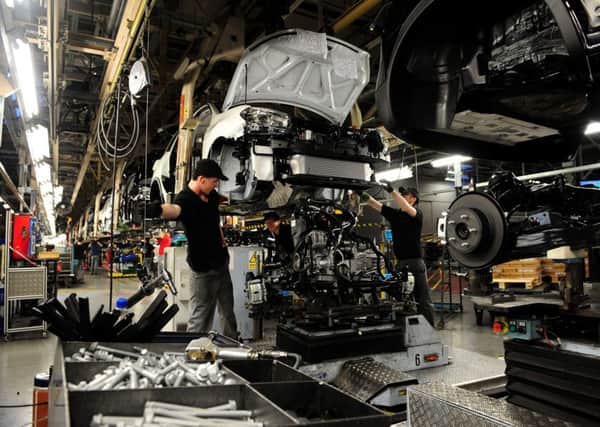John Healey: If we can do Brexit deal with Nissan, we can save our steel industry


If the case for government action is strong for cars, it is even stronger for steel. This is an argument that MPs from all parties will make today in a Commons debate on the UK steel industry, and one which we expect our Prime Minister to take to the top Tata bosses when she leads the high-level trade visit to India next week.
UK steel-making is a foundation for much of our wider world-class British manufacturing and no modern country can flourish without steel as one of its strategic industries. Yet it’s been a tough 12 months for UK steel producers, with a glut of Chinese steel dumped into European markets, high energy costs and too little Government action to help.
Advertisement
Hide AdAdvertisement
Hide AdIn the run up to the EU referendum, senior figures from both companies and unions warned against adding to the uncertainty or price penalty that steel investors face in Britain by cutting the country off from Europe. They argued that the preferential access and protections of the European single market are intrinsic for international investors. The head of UK Steel, Gareth Stace, warned that without tariff-free trade into the biggest export market for British firms the “future health and competitiveness” of UK steel-making was under threat, while Community Union chief Roy Rickhuss issued a strong call for steelworkers to vote Remain.
If it has been a tough year for UK steel firms, it has been a terrible year for steel workers and their families. A year of uncertainty, not just about their own future but about the very future of their industry.
It was exactly a year ago that the Advanced Manufacturing Park in Rotherham hosted a historic summit of Ministers, steel bosses, union leaders and MPs. It was a recognition of the steel crisis and based on the unprecedented joint call for Government action from industry and union leaders, backed by MPs of all parties.
And, speaking at the summit, the then Business Secretary Sajid Javid promised that the Government would “work closely in partnership with the industry to help find some answers”. Later, the then Prime Minister David Cameron pledged his Government were “doing everything we can” to secure a future for steel-making in Britain.
Advertisement
Hide AdAdvertisement
Hide AdRegrettably, words came more easily than action from Ministers. They set up ‘working groups’ to look in more detail at the problems and we still wait for their reports.
Meanwhile, 6 000 steel jobs have been cut across the country over the past 12 months, with more than 700 lost from Tata’s Speciality Steels in South Yorkshire. Almost all of these jobs were axed at our Aldwarke site in Rotherham, and just as the redundancy programme was completed in March the workforce was hit out-of-the-blue by a bombshell announcement from the Indian-based board, that Tata wanted to sell-off its whole UK steel-making business.
Steel workers were left in limbo, with their confidence knocked further just three months as Tata said it was suspending the sale of its UK business as a whole but still planned a separate sale of Speciality Steels, including the Rotherham and Stocksbridge plants.
Now seven months on from Tata’s first announcement to sell, steelworkers still have their lives on hold. The wider industry is still waiting for hard commitments to action from Government. And the leading potential buyers of Speciality Steels find their patience being severely tested by Tata’s delay and indecision over the sale.
Advertisement
Hide AdAdvertisement
Hide AdSo after a year of uncertainty, this November is now the make-or-break month.
The Chancellor (Philip Hammond) must use his Autumn Statement in three weeks’ time to confirm a general commitment to post-Brexit industrial intervention, not just a one-off deal for Nissan, and he must make good on Ministers’ commitments on energy costs, procurement, business rates reductions and funding for skills and R&D. This would be widely welcomed as a signal to the world that UK steel has a strong long-term future, whatever the economic uncertainties that Brexit brings.
And Tata must make up its mind if it really is going to sell Speciality Steels. It has dragged its feet for too long. Confirmation of its preferred purchaser is now vital, so that the unions and local South Yorkshire agencies can assess the plans, then start to work with the potential new owner to ensure success.
This is the month when answers are needed on steel, both for South Yorkshire and for Britain.
John Healey is Labour MP for Wentworth & Dearne in South Yorkshire, a former Treasury Minister and currently Shadow Secretary of State for Housing.